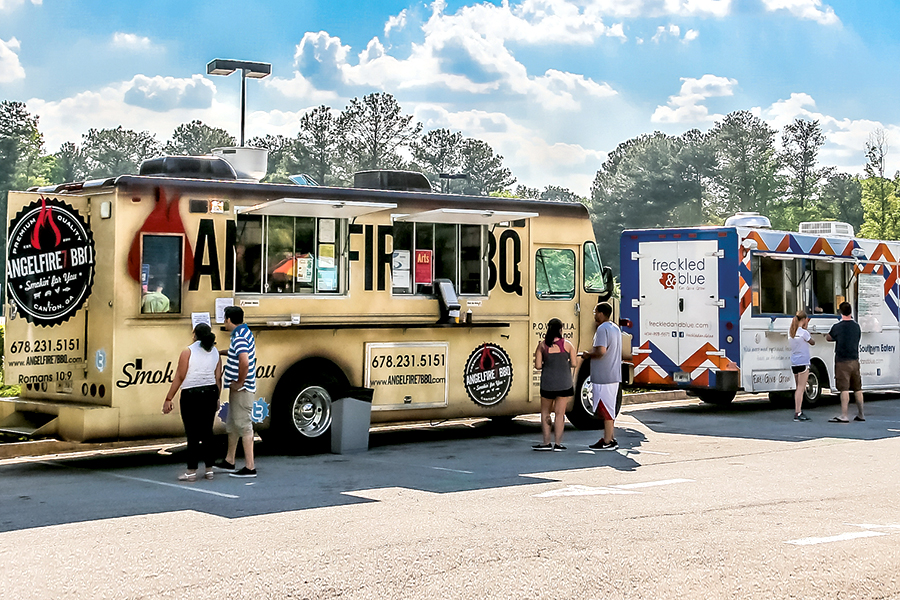
ATLANTA, GEORGIA – May 9, 2015: Preceded by the chuck wagon of the early America through the construction boom’s roach coach, the modern food truck has proliferated into a 1.2 Billion dollar industry.
Food trucks may have seemed like a good idea at the time, but the concept fell flat on its face within a few years of its introduction in the UAE because the business model was simply not ready.
“It was an amazing idea at the time and everybody over-invested in food trucks and we soon realised that RTA doesn’t talk to municipality, municipality doesn’t talk to the owners and the business model wasn’t ready,” said Naim Maadad, founder and CEO of Gates Hospitality.
In the United States, it has proven to be a successful model, where some estimates show that the food truck industry is outgrowing the restaurant industry. This owes to the fact that even with substantial startup costs, the food truck industry is being seen as a safer option. First-time business owners who are wary of the high costs of commercial space can use their food trucks to experiment with ideas and generate a revenue stream.
Studying the success in Western and European markets, entrepreneurs and investors in the GCC decided to join the movement and try out the model in the GCC a few years back. As lucrative as it may have seemed to them then, the concept was soon faced with hurdles and roadblocks unique to this geography. Underdeveloped regulations, complicated investor-owner relations, unfactored expenses and a general difference in the behaviour of consumers in the West and the Middle East saw the trend fizzle out slowly.
“In the western world, it is an owner-operator model where the chef drives, cooks and sells. So it’s not an external investor that hires someone to cook, like it is in Dubai. An external investor wouldn’t have the engagement factor. Because these trucks are not just about food – it’s about cooking with passion and engagement,” he said.
In Dubai, an operator would need to obtain permits from the Department of Economic Development (DED) and the Dubai Municipality, and approvals from both the Roads and Transport Authority (RTA) for the truck license and from the Dubai Electricity and Water Authority (DEWA) for amenities and all of this doesn’t come cheap. If these expenses are incurred by the investor while the food truck is operated by another person, the essence of the concept gets diluted.
Moreover, given the difference in demographics, general consumer behaviour and working patterns, aping a concept that worked elsewhere in the world would come with its own set of challenges.
“Many things went wrong. We shouldn’t be jumping so quickly on replicating ideas that worked elsewhere in the world because our geographical location, our demographics and audience are different. The lifestyle that we lead is very unique to this part of the world. What works in a café in Australia doesn’t work here. We don’t have those business districts with high-rise towers where people come down for a quick healthy lunch on the go, for a concept like food trucks to be successful instantaneously ” he explained.
“Our population is 10 million, 60% of that would be the workforce who wouldn’t spend money in any of our businesses and send money home. And then we have a portion that choose not to eat out. And then there is the 20% that we are all fighting for,” he concluded.